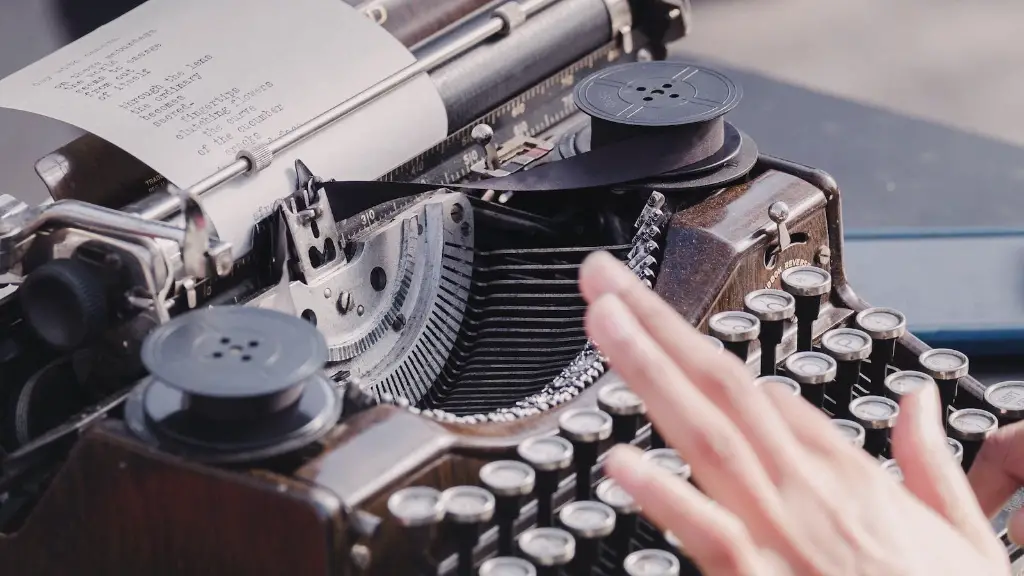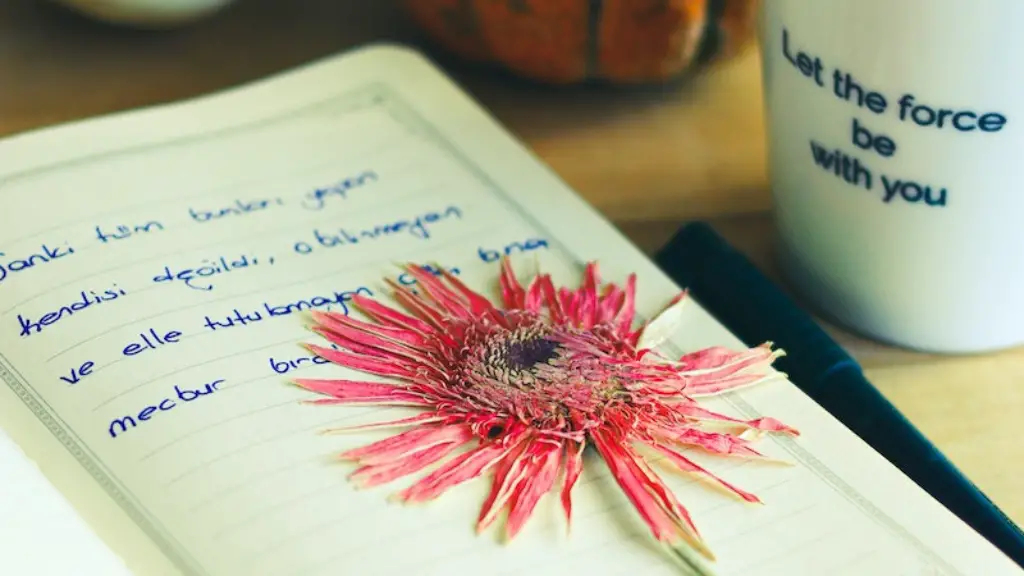What is the Function of Poetry
Poetry is an art form that uses language to create meaningful and powerful effects on readers. It is a form of literature that has been used throughout history to express emotion, thoughts, and ideas. Its function is to convey a message, evoke emotion, and to inspire. Poetry can also be used to express complex concepts in a way that is both easy to understand and interesting to the reader.
The primary function of poetry is to express the feelings, emotions and thoughts of the poet. It can capture moments, feelings of joy and sorrow, love and hate, life and death. Poetry can be used to explore difficult topics and can be an effective way to communicate deep and meaningful messages. The most powerful poetry often comes from writers who are able to express their own experience and feelings in a masking or metaphoric way.
Poetry has been used throughout history by writers from all walks of life. It has been used to express universal themes and to explore the depths of human experience. It can also be used to convey complex ideas and to evoke a range of emotions. Poetry is often used to make political statements, create social commentary, and to challenge existing ideas and beliefs.
In addition to expressing the feelings and emotions of the poet, poetry can also be used to educate and engage readers. Poetry can be an effective way to teach concepts, evoke emotion, and to get the reader to think critically. Poetry can also be used to draw attention to a particular cause or to draw attention to a particular state of affairs. By using vivid language and imagery, poetry can be used to reach a broader audience and to create a more powerful effect on the reader.
Poetry can also be used to create beauty, to explore the big questions of life and to celebrate the world around us. It can be a powerful tool for communication, education and contemplation. Poetry can also be a source of comfort and solace during difficult times. By expressing emotion and thought, it can be a source of healing and comfort.
The function of poetry is to communicate messages, evoke emotion and to challenge existing ideas and beliefs. It can be used to explore difficult topics and to predict potential future events. By tapping into the collective unconscious, poetry can be used to channel the feelings and thoughts of a wide range of people and to make connections between disparate regions and cultures. Poetry can also be a tool for healing, for education and for inspiration.
Poetry and Reflection
Poetry can be used to encourage self-reflection and personal growth. It can provide insight into how people think and feel about different topics and the world around us. Poetry can also be used to examine one’s own life and thoughts in a more meaningful way. It can provide a safe space to share and explore emotions that are difficult to face in everyday life. By exploring these topics, readers can gain insight into themselves, to make sense of their lives and to foster personal growth.
Poetry can also be used to explore the depths of human emotion and to get readers to think and reflect on these deeper topics. By using vivid language and imagery, poetry can be used to evoke powerful emotions and to encourage the reader to take time to reflect on their thoughts and feelings. As a result, poetry can be a powerful tool for self-reflection, self-discovery, and personal growth.
The use of emotion and metaphor can be used to explore complex themes and emotions in a safe and meaningful way. By exploring difficult topics, readers can gain insight and understanding into their own thoughts and feelings. Poetry can also provide an opportunity for healing, for taking time to reflect and to consider what has been experienced in life.
Poetry can also be used to reflect on the human condition in the world today. By drawing attention to certain issues or themes, it can be used to encourage readers to think critically, to reflect on their own beliefs, and to challenge existing ideas and practices. By presenting issues in a more meaningful and accessible way, readers can be encouraged to question their own thoughts and beliefs, and to consider alternative perspectives.
Poetry and Social Change
Poetry can be used to promote social change and to encourage activism. It can be used to draw attention to social and political issues and to point out the injustices in society. Poetry can also be used to educate and to challenge readers to think critically about the world around them. By examining these topics and issues in a more meaningful and accessible way, readers can be encouraged to take action on certain issues and to create positive change in their communities.
Poetry can also be used to bring attention to important causes and to highlight issues that are often hidden or ignored. By discussing these topics in a creative and engaging way, readers may be encouraged to take action or to learn more about certain issues. Poetry can be used to express solidarity and togetherness, to inspire and to encourage readers to stand up for what is just and what is right.
The use of vivid language and imagery also encourages readers to think more deeply about these topics and to consider their own beliefs and views. By presenting complex topics in a more accessible way, readers can gain insight and inspiration, and can be empowered to make positive change in society.
Poetry can also be used to create a sense of unity and solidarity, to show the strength and power of community, and to bring attention to important issues. poetry can also be used to facilitate dialogue and to open up conversations that would otherwise not occur. It can be a powerful tool for understanding and empathy, and can be used to bridge the gap between diverse religious, political and social views.
Poetry and Language
Poetry has the power to bring different languages and cultures together. It can create a common understanding and open up conversations about topics that would otherwise not occur. By engaging with different languages, readers can gain insight and understanding into another’s perspective, and can be exposed to new ideas, beliefs, and cultures.
Poetry can also be used to celebrate the beauty of language. By using words and imagery to create new meanings, poets can create meaningful connections between disparate ideas and cultures. By encouraging readers to explore different languages, poets canu open up the possibilities of words and can help readers to appreciate the power of language.
The use of vivid language and imagery can also be used to create a strong emotional connection between readers and the poet. By tapping into the collective unconscious and by utilizing a creative and engaging style, poets can reach a larger audience and can create a powerful and lasting effect on the reader.
In addition to being a powerful tool for communication and dialogue, poetry can also be a source of inspiration and creativity. By using words to evoke emotion and to explore complex concepts, poets can inspire and educate readers, and can help them to think more deeply about their own lives and experiences.
Conclusion of Poetry
The function of poetry is to communicate powerful messages, to evoke emotion, and to inspire. It can be used to explore difficult topics and to express the feelings, ideas and experience of the poet. It can also be used to educate and engage readers, to challenge existing ideas and beliefs, and to promote social change.
The power of poetry comes from its ability to create meaningful and powerful effects on readers. By tapping into the collective unconscious and by using vivid language and imagery, poets can reach a larger audience and can create a powerful and lasting effect on the reader. As a result, poetry can be a powerful and effective tool for communication, education, and contemplation.





